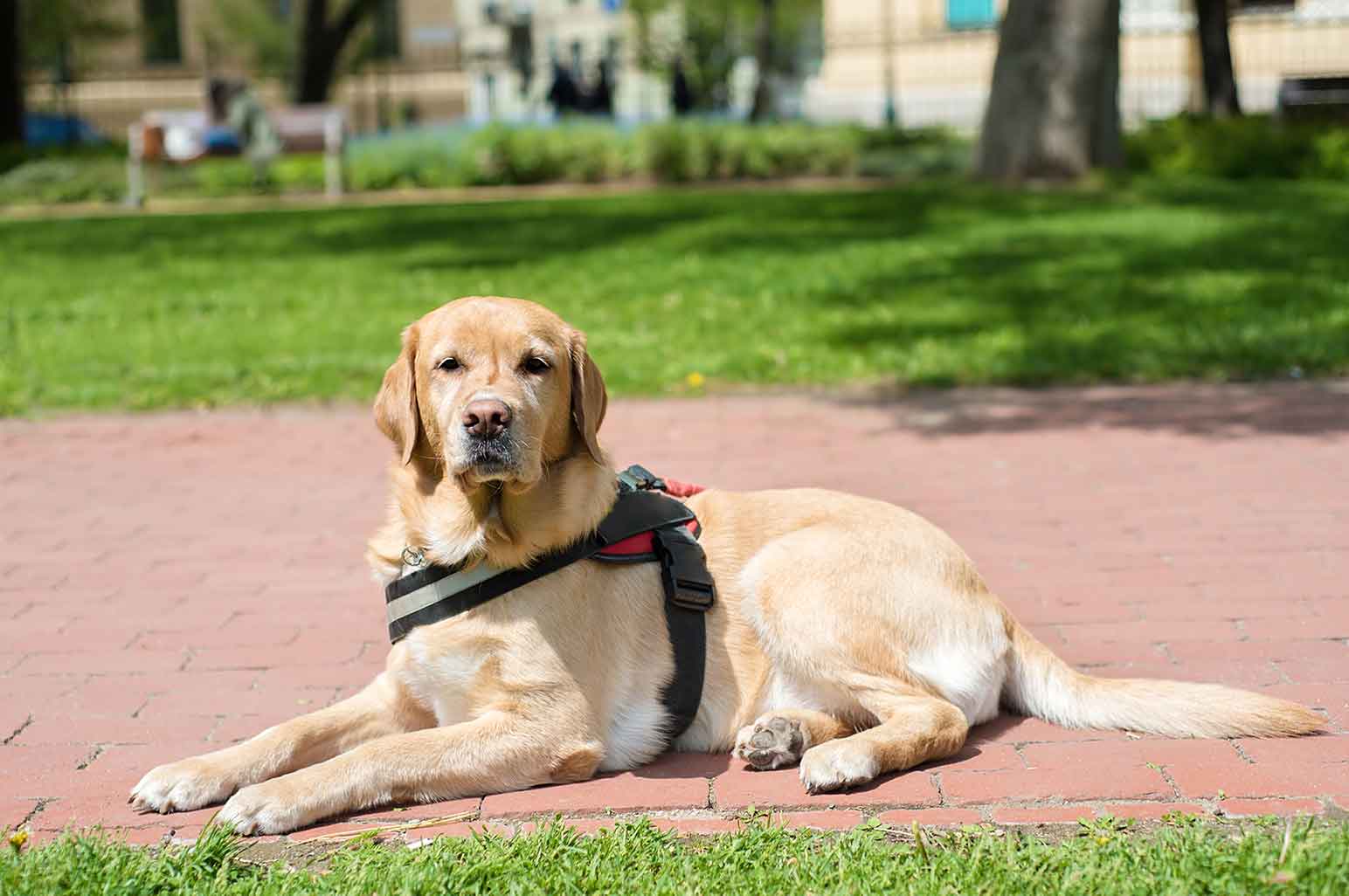
As a parent, the last thing you want is to see your child struggle in a place where you can’t help them. If you have a child with an anxiety disorder, you may be all too familiar with that feeling of helplessness.
A child with anxiety may struggle with forming relationships, entering social spaces, or adjusting to new environments. They may battle with feelings of panic and overwhelming sensations.
So, how do you help?
One possible route is to find a service dog to be a friend through this hidden disability. A service dog is a faithful companion who will be trained to help your child control and manage their anxiety. This process begins with a service dog registration and continues through the formation of a lifelong bond.

The Basics
Before you commit to a furry companion, you need to answer some basic questions.
- Is anyone in your family allergic to dogs?
- Does your child like dogs?
- Are you financially and emotionally able to support a dog (food, vet bills, emergency care)?
- Can you manage both a child and a service dog?
These questions help determine if your family is in a place to receive the love and attention of a service dog.
You will also want to think about the type of companion animal that will best support your child. For instance, there are specially trained service dogs, emotional support dogs, or therapy dogs.
Consult your child’s doctor to learn the difference and how they might help.
If you are exploring the option of an emotional support animal, it’s crucial to understand how to qualify for an ESA and the rights and responsibilities that come with having one. The right type of dog can make all the difference in helping your child navigate their daily challenges.
Do Dogs Help With Anxiety?
Research shows that animals, especially dogs, are shown to help children with emotional disorders like autism spectrum disorders or anxiety.
Children are naturally drawn to animals and often benefit from their company. They help ground children by distracting them and pulling them out of the grip of anxiety. They serve as an emotional regulator and best friend.
Dogs can also help teach children trust, empathy, communication, and other social behaviors.

What Tasks Can They Help With?
Anxiety is just one facet of several other disabilities, including developmental disabilities or behavioral disorders. A specially trained service dog can help with specific tasks, and a professional agency can serve as the matchmaker between an animal and the child’s needs.
Some physiological areas a dog can assist with include:
- Avoiding obstacles that induce anxiety
- Retrieval-based tasks like bringing a phone or water bottle to a child having a panic attack
- Nose-nudged or pawing-based interruptions to interrupt anxiety-induced behaviors
If the child has repetitive behaviors like shaking, rocking, or picking as their anxiety escalates, the dog can be trained to interrupt this behavior. The child can be taught to react to this interruption by taking deep breaths or another therapeutic technique.
In many ways, the dog is a buffer between the child and whatever is inducing the anxiety. They bring them back to the center and remind them to engage in calming techniques to deal with the situation.
Does My Child Qualify for a Service Dog?
In order to qualify for a specially trained service dog, the family must answer these questions:
- Is the animal required due to a disability?
- Who will be the dog’s handler (parent, child, or third party)?
- What is the task or work the animal will do to help with the specific disability?
Answering these questions and working with a mental health professional will help you determine if your child needs a service dog, emotional support animal, or therapy animal.

In Conclusion
Supporting your child through their disability is the goal here, and a service dog might just be the way to achieve it.
